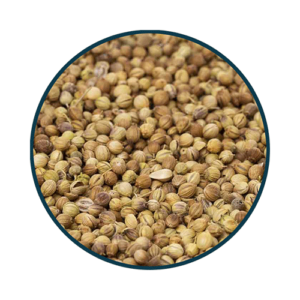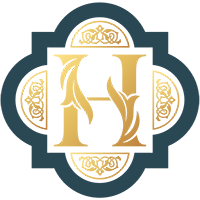08 Oct Coriander

Coriander
Coriandrum sativum
Introducing the incredible properties of coriander
Coriander is very famous among Asians and grows in Northeast Africa and Southwest Asia.
The stems and leaves of the herb can be used both dried and ground, with the roots being used in East Asian cooking. Coriander seeds are very popular and full of extraordinary properties.
Medicinal properties of coriander seeds
The herb is rich with many incredible medicinal and treating properties stored in the seeds.
- Rejuvenating and anti-aging properties
Due to the presence of linoleic and cineole acids, coriander can treat skin inflammation.
The herb may help rejuvenate and soothe the skin naturally and make it glow. Hence, it is used in cosmetic productions as a cleanser to help prevent skin dryness, rashes, and pigmentation
Other properties of the herb include treating eczema, one of the skin disorders and fungal infections.
- Anti-rheumatism
The major component that is found in coriander is called linoleic acid and cineole acid, which can help to treat rheumatism.
- Good for urinary system
Having anti-inflammatory properties, the seeds of the herb may help reduce swelling of the kidneys, while boosting the function of the urinary system by reducing excess water from the body.
- Anti-arthritis properties
The linoleic acid cineole in the seed is effective in treating arthritis due to its anti-inflammatory properties.
- Promoting digestion and gut health
Oil extracted from the herb such as borneol and linalool can improve digestion and gut health. If the improvement in digestive system will lead to live function better that decreases abdominal pain, bloating, and discomfort.
- Treating the mouth sores
Having disinfectant properties related to a compound called citronellol, the aromatic coriander seed oil can help heal mouth wounds and sores.
Therefore, the antibacterial properties of the herb are used in dental health and mouthwash production to fight bacteria and bad odor.
- Good for heart health
Full of vitamin C content, stearic acid, linoleic acid, and palmitic acid, the seeds may help reduce bad blood cholesterol levels, while increasing the good cholesterol in the body, thus lowering heart attack probabilities by preventing blood clots in the arteries. The seed help regulate the heartbeat. Also, the potassium in coriander seeds lowers blood pressure and is effective in improving cardiovascular health.
- Effective in cleansing the stomach and intestines
Having antimicrobial and antifungal properties, the Coriander seeds can help fight bacterial infections in the stomach and intestines caused by stomach upset and diarrhea.
- Anti-inflammatory properties
The herb antioxidants fight inflammation in your body and help boost the nervous system
- Rich in antioxidants
The antioxidant compounds of the seeds fight free radicals, improve the body’s immune system and prevent cancer.
- Lower blood sugar
When the insulin decreases in the body, the glucose cannot convert to energy, thus, increasing the blood sugar in the vessels. Coriander helps the body increase insulin in a way that will stimulate the endocrine glands and help your pancreas produce more insulin. The herb also helps boost the body’s metabolism by improving the pancreas function.
- Bone health and treating anemia
Rich in calcium, iron, and other minerals, the Coriander may increase red blood cells while improve the oxygen transitions to the cells, help fight anemia and, hence, improve bone health.
Coriander Ingredients
Coriander contains the following minerals and vitamins:
- Vitamin A
- Pantothenic acid B5
- Beta-carotene
- B vitamins such as B1, B12, B6, B3, B2
- Zeaxanthin and lutein
- Vitamins C and E
- Folic acid B9
- Vitamin K
- Calcium and iron
- Phosphorus and potassium
- Zinc and manganese
- Sodium and magnesium

